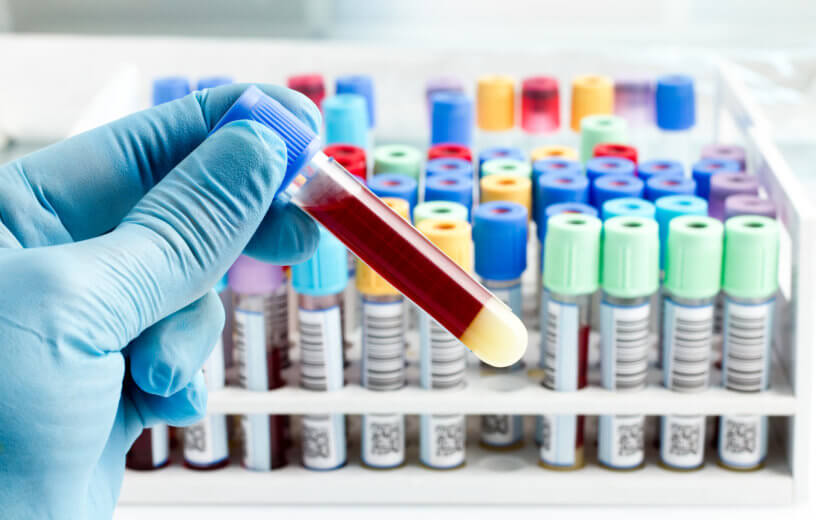BOSTON — While some cancerous tumors are fairly easy to spot, a brain tumor can be harder to diagnose. Even worse, some of these tumors are among the deadliest forms of the disease. Now, a new blood test is giving doctors hope of detecting life-threatening growths faster and more accurately than ever before.
Researchers at Massachusetts General Hospital (MGH) have developed a non-invasive exam which detects two genetic mutations linked to the most common forms of brain tumors, gliomas. These tumors affect the glia, central, and peripheral nervous system cells which all support the brain’s electrical transmitters, or neurons. These two mutations, C228T and C250T, promote the growth of over 60 percent of all gliomas and 80 percent of high-grade gliomas — the most aggressive and deadly variety.
The test uses a liquid biopsy which looks for fragments of tumor DNA that is circulating in the bloodstream. This technique is not new and has been shown to be accurate in finding other forms of cancer. Until now however, brain tumor DNA has been much more difficult to pin down.
“Liquid biopsy is particularly challenging in brain tumors because mutant DNA is shed into the bloodstream at much lower level than any other types of tumors,” Leonora Balaj from MGH’s Department of Neurosurgery explains in a media release.
Researchers invented a unique digital droplet polymerase chain reaction (ddPCR) blood test which accurately locates and can monitor these two mutations in the TERT gene. “By ‘supercharging’ our ddPCR assay with novel technical improvements, we showed for the first time that the most prevalent mutation in malignant gliomas can be detected in blood, opening a new landscape for detection and monitoring of the tumors.”
Blood test ten times the accuracy for brain tumors
The team started their experiments by testing the ddPCR assay against tumor tissue. Those results lined up perfectly with other labs exams on TERT mutations. From there, scientists used the new system to examine blood plasma from patient tumors. Again, the ddPCR assay successfully detected TERT mutations in samples from MGH and tumor plasma collected from other participating labs.
Overall, the results show the ddPCR assay has the ability to detect gliomas with 62.5 percent efficiency. This level of sensitivity marks a ten-fold improvement over previous tissue-based tests looking brain tumors.
Researchers note that this method is also quickly completed, easy to use, and has a low cost to operate. They add the blood test could be performed in most laboratory settings.
“We envision the future integration of tests like this one into the clinical care of our patients with brain tumors,” says Dr. Bob S. Carter, chief of Neurosurgery and co-director of the MGH Brain Tumor Center.
“For example, if a patient has a suspected mass on MRI scanning, we can take a blood sample before the surgery and assess the presence of the tumor signature in the blood, and then use this signature as a baseline to monitor as the patient later receives treatment, both to gauge response to the treatment and gain early insight into any potential recurrence.”
The Study appears in the journal Clinical Cancer Research.
Like studies? Follow us on Facebook!
